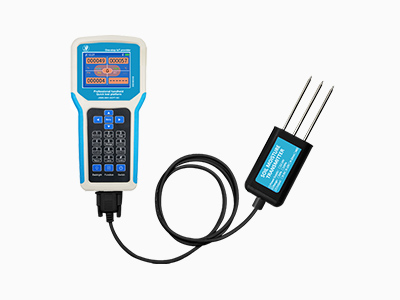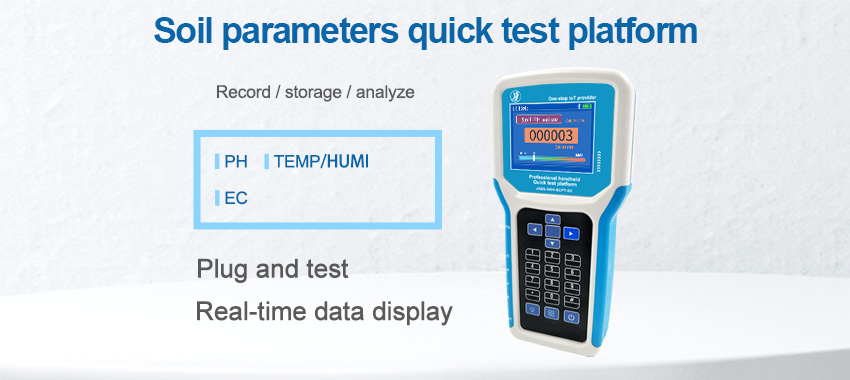As the global population continues to grow, the demand for food and agricultural products is also increasing. This has put immense pressure on farmers to produce more food in a sustainable and efficient manner. Sustainable farming practices are essential to ensure that agriculture can meet the needs of the present without compromising the ability of future generations to meet their own needs. One of the key components of sustainable farming is the management of soil health. Soil sensors have emerged as a valuable tool for farmers to monitor and manage soil health, leading to more sustainable farming practices.

The Role of Soil Sensors
Soil sensors are devices that are used to measure various parameters of the soil, such as moisture levels, temperature, nutrient content, and pH levels. These sensors can provide real-time data on the condition of the soil, allowing farmers to make informed decisions about irrigation, fertilization, and other farming practices. By using soil sensors, farmers can optimize their use of resources and minimize waste, leading to more sustainable farming practices.
One of the key benefits of soil sensors is their ability to provide precise and localized data. Traditional methods of soil testing often involve taking samples from various locations in a field and sending them to a laboratory for analysis. This process can be time-consuming and costly, and the results may not accurately reflect the conditions of the entire field. Soil sensors, on the other hand, can provide real-time data from multiple points in a field, allowing farmers to make more accurate and targeted decisions about their farming practices.
In addition to providing real-time data, soil sensors can also help farmers to monitor changes in soil health over time. By tracking changes in moisture levels, nutrient content, and other parameters, farmers can identify trends and patterns in the soil, allowing them to make proactive adjustments to their farming practices. This can help to prevent the degradation of soil health and promote long-term sustainability in agriculture.
Sustainable Farming Practices
The use of soil sensors can support a range of sustainable farming practices. One of the key benefits of soil sensors is their ability to optimize irrigation practices. By providing real-time data on soil moisture levels, soil sensors can help farmers to ensure that their crops receive the right amount of water at the right time. This can help to prevent over-irrigation, which can lead to water waste and soil erosion, as well as under-irrigation, which can lead to crop stress and reduced yields. By optimizing irrigation practices, farmers can conserve water resources and promote sustainable farming.
Soil sensors can also support sustainable fertilization practices. By providing real-time data on nutrient levels in the soil, soil sensors can help farmers to apply fertilizers more efficiently and effectively. This can help to prevent over-fertilization, which can lead to nutrient runoff and water pollution, as well as under-fertilization, which can lead to nutrient deficiencies in crops. By optimizing fertilization practices, farmers can minimize the environmental impact of their farming operations and promote sustainable agriculture.
In addition to optimizing irrigation and fertilization practices, soil sensors can also support sustainable pest and disease management. By monitoring soil conditions, farmers can identify conditions that are conducive to pest and disease outbreaks, allowing them to take proactive measures to prevent infestations. This can help to reduce the need for chemical pesticides and promote more sustainable pest management practices.
Challenges and Opportunities
While soil sensors offer many benefits for sustainable farming, there are also challenges to their widespread adoption. One of the key challenges is the cost of soil sensors. While the price of soil sensors has decreased in recent years, they can still be expensive for small-scale farmers, particularly in developing countries. There is a need for more affordable soil sensor technologies that can be accessible to a wider range of farmers.
Another challenge is the complexity of soil sensor data. While soil sensors can provide valuable data, farmers may need support to interpret and apply this data to their farming practices. There is a need for training and extension services to help farmers understand how to use soil sensor data effectively.
Despite these challenges, there are also opportunities to promote the use of soil sensors in sustainable farming. Advances in technology are leading to the development of more affordable and user-friendly soil sensor technologies. There is also growing interest in sustainable agriculture from consumers, policymakers, and the private sector, which can create incentives for farmers to adopt sustainable farming practices, including the use of soil sensors.
Conclusion

Soil sensors have the potential to play a key role in promoting sustainable farming practices. By providing real-time data on soil conditions, soil sensors can help farmers to optimize their use of resources, minimize waste, and promote long-term soil health. While there are challenges to the widespread adoption of soil sensors, there are also opportunities to promote their use in sustainable agriculture. With the right support and incentives, soil sensors can help to cultivate a more sustainable future for agriculture.
